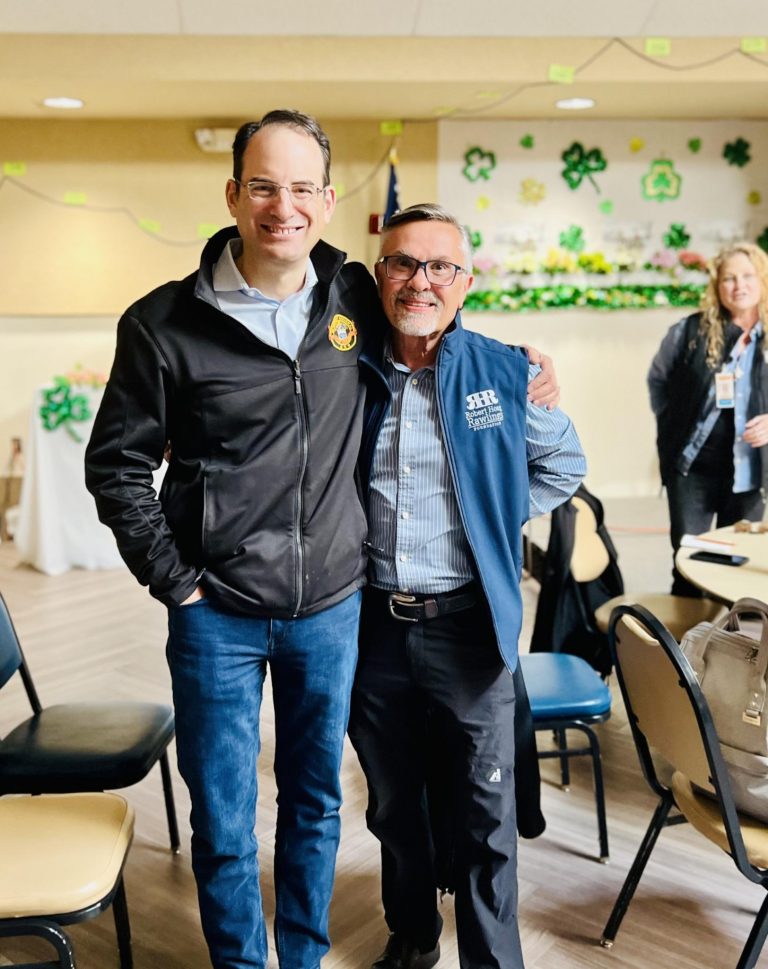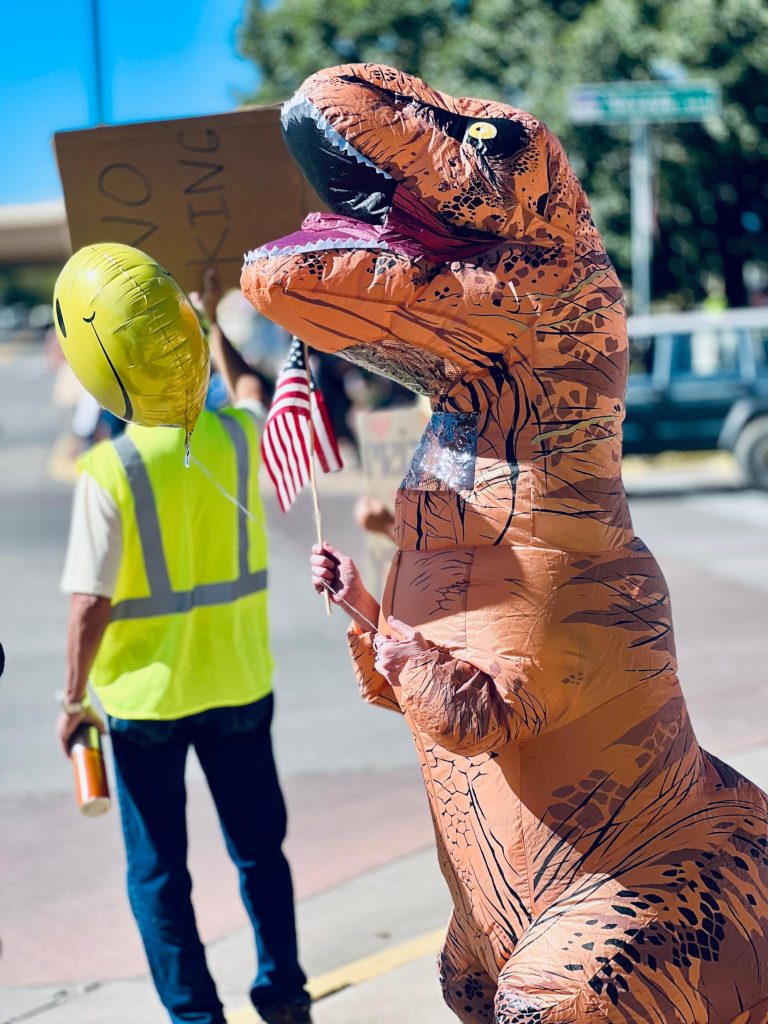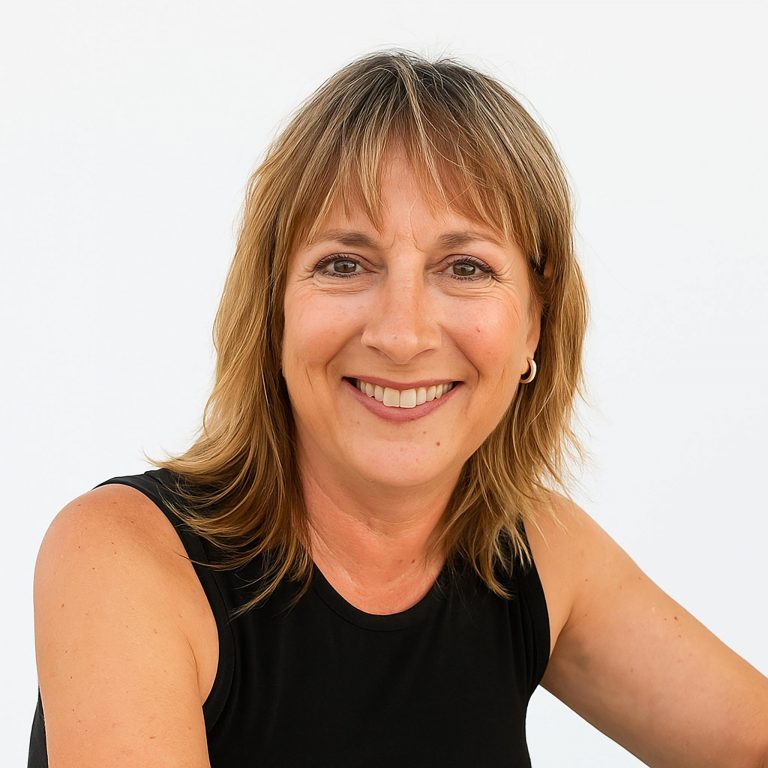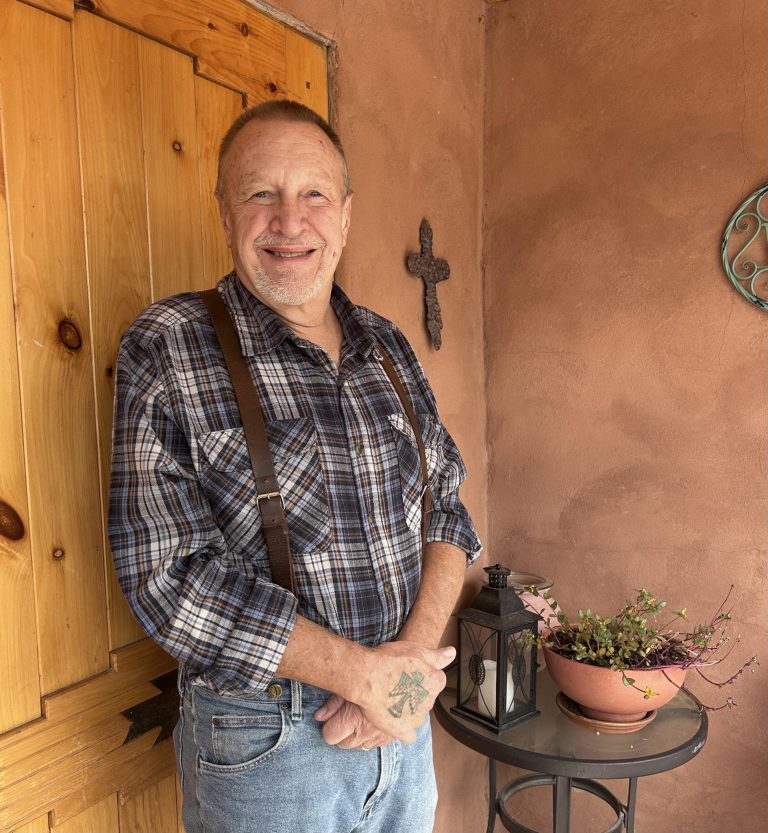T’Naus Nieto
The Chronicle-News
Phil Weiser addresses rural healthcare access, education and teacher shortages, opioid crisis, unfunded state mandates, agriculture, water, housing, more
Colorado Attorney General Phil Weiser announced at the beginning of 2025 that he planned to run for the state’s governor’s seat in 2026. In an interview with The Chronicle-News, he addressed some of the prominent issues communities in rural southeastern Colorado face.
Weiser is no stranger to the often neglected and overlooked areas of the state, counties such as Las Animas, Otero, Bent, Prowers and more.
As AG he publicly opposed water transfers from areas of agriculture, or “buy and dry” schemes for profit, he launched the Colorado Partnership for Education and Rural Revitalization, or COPERR, which was to address housing challenges through a grant program that sent $2.76 million to Trinidad State College and $1.46 million to Lamar Community College.
Weiser is also known for pushing for broadband in rural areas, even taking legal action, urging the Supreme Court to uphold the Universal Service Fund. He worked with Startup Colorado to support entrepreneurship, and even publicly voiced opposition against a “one size fits all” approach to state legislation.
Of course, one concern many in rural southeast Colorado may have is healthcare access, amid the potential shutdown of hospitals, such as in La Junta, the dire financial strain places like Salud Family Health faced post pandemic, and the rural healthcare against federal legislation, such as with the One Big Beautiful Bill Act, which proposed nearly $1 trillion in cuts to Medicaid, which, according to multiple sources is a primary funding mechanism for rural hospitals and clinics.
If elected governor, how would you address rural healthcare access?
Weiser: When hospitals like the one in La Junta are cutting OB services and laying off staff, it’s a clear warning sign. If Medicaid is slashed, we risk losing even more hospitals across Colorado that are already operating on thin margins. That’s not just about healthcare — it’s about jobs, stability and the long-term future of rural communities.
As Attorney General, I’ve brought in close to $900 million from opioid settlements—resources now funding behavioral health programs statewide, including in rural areas. I have also prioritized our rural communities, spearheading a Colorado Partnership for Education and Rural Revitalization.
As Governor, I’ll build on that work by launching a Health Care Stabilization and Innovation Task Force to protect access, especially in vulnerable communities. I’ll also invest in training more healthcare workers through ColoradoCorps and strengthen our public health system to ensure no Colorado community is left behind. And I’ll continue to protect patients by stopping drug price collusion, preserving caps on life-saving medications like insulin, and protecting families from medical debt collectors.
I understand that back in July, you joined a lawsuit against the Department of Education’s decision to freeze billions in K-12 education grants. If elected, would you help address education struggles in rural areas?
Weiser: Yes. So, one of the lawsuits I’ve brought is to protect a program that prepares teachers for rural areas. And one of the initiatives I’ve announced that I would want to launch as Governor, I’m calling it Colorado Corps, where we are preparing students, whether it’s after high school, community college, or college, to become teachers or teachers’ aides to work, particularly in rural communities, where there’s a real shortage of teachers and to be members of those communities, to be helping to improve education in those communities.
Another lawsuit I brought was to protect AmeriCorps, a program that contributes $8 to $10 million to Colorado. We have a lot of AmeriCorps volunteers who are making a huge impact in Colorado. I actually met with some of those volunteers, including ones who work in Southern Colorado, and heard about the impact they make working with the schools in particular.
From the funding standpoint, I want to make sure that we’re doing better.
Right now, Colorado is among the worst states. There’s funding and investment in education, supporting how our kids are doing, but many results show we’re not making investments, and we can do better.
For example, how do we encourage more mentorship of kids, build relationships, and get kids off their phones to develop skills, which could include career and tech legislation skills? It can include resilience skills.
Las Animas County, Huerfano County have been among the hardest hit in the state, according to data, regarding the opioid crisis. Can you address those concerns?
Weiser: Southern Colorado has been devastated by the opioid crisis. When you look at maps of overdose deaths, southeastern Colorado is bright red. And that’s one reason why I’ve taken it so seriously to address this opioid crisis and to work to build more treatment.
So, with my work and leadership for the first time, at least in a very, very long time, there’s now a treatment center in the San Luis Valley, which has treated over 1,000 people who have opioid use disorder.
We’ve worked to get medication addiction treatment in all the jails in Colorado, which is crucial because so many of the people who are struggling with addiction end up in jail.
And then the question is, are they getting help, or are they just going through a cycle where they’re incarcerated, they’re released, then they go back to using, maybe they overdose, or they end up back in jail.
And this has been a top priority for me. It will continue to be a top priority for me.
This is life-saving work. I’ve met people who’ve lost loved ones, and we have made progress in 2024. Opioid deaths from overdoses have gone down in Colorado by 30%.
I’m proud of the work we’ve done, but there’s more work to do. As Governor, I will play a leadership role to ensure it happens.
There’s a perspective in rural southeastern areas where they talk about ‘the urban-rural divide,’ and sometimes we feel like the state government ignores our needs or imposes unfunded mandates that might not be reasonable. So, can you address those concerns?
Weiser: First, it’s critical to show up in Trinidad, in the San Luis Valley, the Arkansas Valley (for example), and it’s crucial to build relationships.
Rick Klein, long-time city manager in La Junta, is a friend of mine and someone whom I rely on for counsel or feedback. We in state government need to really listen and learn from people on the ground because, as your point highlights, the regulations you might adopt for childcare centers that make sense in Denver, for example, parking spot requirements, will not make sense in La Junta.
And shame on us if we allow mandates that make sense in Denver to be imposed on La Junta, Trinidad, and others, and then don’t listen to people in those areas when there are complaints about the state government having a heavy hand.
I’m going to have a rural policy and a rural outreach coordinator who’ll work for me as Governor. I’m going to make sure that we’re doing everything we can to avoid these heavy-handed requirements. We must always listen to, always be in dialogue with, rural communities, so they don’t feel at the short end of the stick or like they’re not cared for.
Instead, I want them to know that when it comes to education, healthcare, and transportation, we at the state level need to do better and ensure we’re supporting rural communities.
What are your perspectives, ideas on agriculture?
Weiser: Agriculture is Colorado’s top or close to the top industry and export. If you think about our overall economy, agriculture is a fundamental driver and needs to remain so.
One of the core issues for agriculture that we’re going to have to be really smart about and need leadership for is water. I’m actually going to have a water policy advisor, very much like John Stulp (water ambassador who recently passed away).
I was just down in Lamar a couple of months ago for John’s memorial service. He was a friend and a mentor and had endorsed my campaign before he passed.
John taught me a lot about water. And one of the most important lessons that John taught me was how crucial it is that our water policy works for all of our state.
We won’t allow rural communities, like has already happened in southeast Colorado and Crowley County, to be subject to “buy-and-dry” schemes that could make investors wealthy but could undermine agricultural economies.
There’s a proposal on the table to take water from the San Luis Valley, which would make investors wealthy but harm the community.
And I’ve been the first federal or statewide elected official to call that out and condemn it and say, ‘Over my dead body, I’m not going to let it happen.’
We need to ensure that our plans and management of water work for all of our state. And that includes supporting a thriving agricultural economy.
Now, there is going to be a need for changes because we are living in this time of drought. But we’ve got to make sure that those changes are done with communities, with them at the table, and not dictated to them.
I know you pushed back a lot against federal government overreach, but what is your stance on the executive branch and partisan polarization?
Weiser: I believe in the 10th Amendment. The 10th Amendment says that states have sovereign authority and can make their own decisions.
Colorado has made an important decision. Our law enforcement officers do law enforcement—period. The federal government has tried to dictate to Colorado how our law enforcement officers should be conducting immigration enforcement activities.
This happened in the first Trump administration. It’s happening now. That’s something I see as a problem because we don’t have enough law enforcement officers in Colorado to handle [the current situation.]
There are parts of our state where, if you’re subject to harassment, contractor fraud, or your car is stolen, there aren’t enough police to actually investigate those crimes.
And that’s a threat to public safety that harms victims. I want our law enforcement to focus on law enforcement. The federal government is responsible for immigration enforcement. They should be the ones doing immigration enforcement.
They can sue our state, which they have, but they don’t have a legal leg to stand on because we have our constitutional authority under the 10th Amendment.
And what our federal government needs to know is that if you can work with me in Colorado as attorney general or Governor, based on the law in good faith, I’m willing to work with anyone who’s president.
I’m working with this administration and suing Google, which is a monopolist. And that’s happening in good faith, in cooperation. But if they’re going to, in bad faith, threaten the Constitution and try to bully us, they need to know I’m going to stand for my principles and I’m going to fight for Colorado.
Do you have a message for the people in rural southeastern Colorado
Weiser: When I was running for attorney general, I visited Trinidad and La Junta. I heard about the housing issues there, where some housing was falling apart and needed more rehabilitation. I was asked, ‘What can you do?’
It turned out that our department had a $60 million fund obtained from suing the big banks.
And I went back and I asked how much of that fund went to southern Colorado, south of Pueblo.
They said, ‘Well, we spent $50 million, and none of it has gone to southern Colorado.”
I said, ‘I’m going to change that.’
And so, for the remaining $10 million, we focused on southern Colorado and created a coalition of four community colleges: Pueblo, Otero, Lamar, and Trinidad.
And we’re now training people. And when I went to John Stulp’s memorial Service, I heard that in Lamar, there’s now a new construction firm that came from graduates from the Lamar Community College Program that we supported through the COPERR.
That’s the type of leadership of showing up, of listening to people and delivering results that I provide as attorney general and that I’ll provide as Governor. And that leadership will always focus on all of our state, for all those communities.
I’ve got your back, and I am here to serve you. And as you confront challenges, I take those on as personal challenges. And I’ve shown that commitment, whether it’s in the housing area, whether it’s water, whether it’s public safety, or whether it’s the opioid crisis, and that’s not going to change.
Can you provide potential voters with some background on yourself?
Weiser: I am a first-generation American. My mom and grandparents survived the Holocaust and came to the United States believing that ours is the land of freedom and opportunity.
And I grew up with a great deal of patriotism, believing in America. And I went to college and to law school because I wanted to be involved in public service.
I didn’t know what that looked like. And through an unlikely chain of events, my first job at a law school was in Colorado, which I had never been to because I grew up on the East Coast. And I loved it here. And what I particularly loved here is how people here really root for each other, hold for each other and care about each other.
I have spent, since coming out here in 1994, a couple of different stints working in government in Washington, D.C., at the Supreme Court of the Justice Department under President Clinton, and the Justice Department in the White House when President Obama was president.
My time here has been as a law professor and the law school dean at the University of Colorado, where I’ve been deeply involved in community work, public service, and public policy, which includes supporting political campaigns, collaborating with state and local governments, and engaging in various public service activities.
And I was finishing up my time as dean, ready to go to a Hillary Clinton administration when that didn’t happen, and my decision was to run, to be Colorado’s Attorney General, and serve in public service in an elected capacity.
Elected public service at the state level has been a revelation for me because you get to know the communities and the people you represent.
I’ve taken that very seriously and the importance of showing up and listening communities from Trinidad to the San Luis Valley to the Western Slope to the Eastern Plains, I’ve taken this job on and as I’ve done work in a variety of areas from public safety to water to the opioid crisis, it’s clear to me that we’re at an important time for Colorado, in America.
We have a federal government in Washington that is lawless and a bully. And I’m committed to standing up for Colorado and our freedoms. And I want to keep doing that as governor.
There’s a lot more work I can do. And the work I’ve done as attorney general naturally prepares me to be the next governor.




